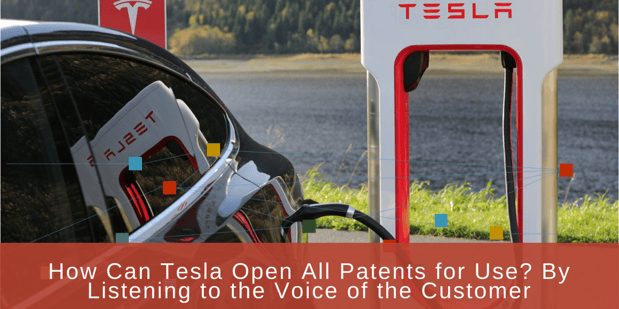 Even now, years after Elon Musk made the announcement that Tesla would not pursue litigation for anyone who used Tesla patents in good faith, people still don’t know how to react. How could anyone give up that kind of power? Isn’t the point of a patent to enjoy some form of monopoly on the industry?
Even now, years after Elon Musk made the announcement that Tesla would not pursue litigation for anyone who used Tesla patents in good faith, people still don’t know how to react. How could anyone give up that kind of power? Isn’t the point of a patent to enjoy some form of monopoly on the industry?
Well, yes, the point of a patent is to allow patent holders to monetize their inventions without fear of losing market share to similar innovations over a set period of time. However, Elon Musk understands one critical thing about this time period of monopolization: No one else can advance technology around a particular patent while during the lifetime of the patent. Not without expensive licensing agreements and plenty of time spent on paperwork, that is.
Musk is an innovator, first and foremost. His drive is to see technology continue to improve the lives of humans. If that means opening up Tesla patents to give other innovators a crack at making electric cars, solar powered roof tiles, and any other life-changing invention he comes up with in the next year years, well, that’s what he’s going to do.
Facing the Challenges
Of course, when Musk opens up Tesla patents for use, he does take a chance on another company eating away at his market share. Indeed, Tesla is not the only electric car manufacturer, and it wasn’t even the first. When compared to other car manufacturers, the total number of Teslas sold can’t even begin to compare to the total number of, say, Chevrolets or Fords.
The electric car pioneer (we’ll call them that, even if they weren’t the first. They are still the name in electric cars, anyway) has moved 47,000 units this year so far. In 2016, GM—as a whole—sold 10 million. However, if you break down the electric car sales, Tesla is clearly on top.
So, has giving up their rights to litigation over specific electric car patents affected their hold on the electric car market share? Apparently not. The top two placeholders in electric car sales belong to Tesla. In this particular arena, Chevy takes a backseat.
What’s the Difference?
If opening up their patents to any and all users hasn’t affected their sales, what is driving Tesla to the top of the electric car market? It’s certainly not the price point, either. Until the release of the Model 3, the available Tesla cars were nearly double the price of the Chevrolet Bolt. That didn’t keep Tesla from climbing to the top.
The real difference is that Tesla pays attention to the voice of the customer. Sure, they’ve built a fantastic brand around a charismatic and mysterious leader, but more than that, they know what people really want.
Before the Tesla arrived, electric cars were nothing new. They were, however, considered ugly—or at the very best, less than stylish. Tesla swooped in with their stunning designs and won the hearts and minds of every environmentalist out there. No longer was the “ugly” electric car the only option for those who cared for the future of the planet. Cross one off the list of customer wishes.
Next, there was the little problem with the battery range on electric vehicles. Sure, they were great for getting around town, but what about people who wanted to take the cars on long road trips? Who could afford to have one car for town jaunts and a gas-powered car for the long haul.
Tesla heard the buyers. First, they developed vehicles with a longer range. That helped to ease some fears, but it wasn’t enough. What about those who needed a bit of juice while on the trail? No one wanted to wait hours on end in the middle of nowhere for their car battery to charge. That’s when Tesla introduced the fast-charging technology.
See? They heard what people wanted and provided it. Sure, other car manufacturers are on their heels now with the driving range and the speedy charging options. So far, though, no one’s managed to beat Tesla on style.
And because they’re always listening to the voice of the customer, we know the next innovation from Tesla will continue to help them maintain their share of an ever-growing pie. A pie that’s growing because Tesla made their patents available to anyone who wanted to keep making the pie bigger.
Win. Win.



